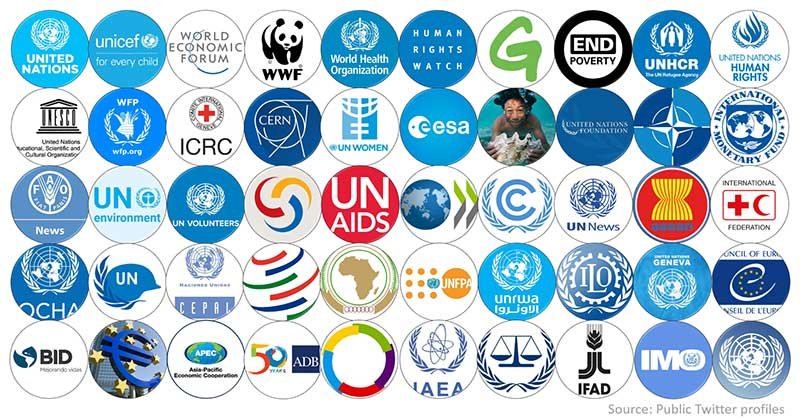
The Basic Principles of International Organizations: A Foundation for Global Cooperation
International organizations play a pivotal role in addressing global challenges in an increasingly interconnected world. From promoting peace and security to tackling climate change and health crises, these organizations are vital for fostering collaboration across nations. But what principles guide their operations, and how do they function effectively in such a complex landscape?
In this post, we’ll explore the basic principles that underpin international organizations, drawing from insights I gained during the “International Organizations Management” course by the University of Geneva on Coursera.
The Foundation: Sovereignty and Cooperation
The origins of modern international organizations can be traced back to the Treaty of Westphalia (1648), which introduced the concept of state sovereignty. This principle laid the groundwork for global cooperation, emphasizing mutual respect for national independence while recognizing the need for collective action on issues that transcend borders.
The United Nations Charter, for example, embodies these ideals through its core principles:
- Sovereign Equality: All member states, regardless of size or power, are equal under international law. This ensures that even smaller nations have a voice in global decision-making.
- Peaceful Dispute Resolution: The use of force is discouraged, with a focus on dialogue and negotiations to settle conflicts.
- Enforcement Action: In cases where peace and security are at risk, international organizations like the UN can take enforcement measures, such as sanctions or peacekeeping missions.
- Good Faith in Obligations: Member states are expected to honor their commitments to international agreements sincerely.
- Non-Intervention: International organizations must respect nations’ domestic affairs, stepping in only when authorized or necessary to uphold international peace and security.
Types and Scope of International Organizations
International organizations vary in their scope and nature, catering to different needs and regions:
- By Scope:
- Global Organizations: These address worldwide issues, like the UN, World Bank, or World Health Organization (WHO).
- Regional Organizations: Groups like the African Union (AU) or European Union (EU) focus on issues specific to a geographic region.
- Subregional Organizations: Smaller-scale entities, such as the Southern African Development Community (SADC), tackle localized concerns.
- By Nature:
- Intergovernmental Organizations (IGOs): Comprising sovereign states, IGOs operate through agreements binding to their members (e.g., NATO, WTO).
- Non-Profit Organizations: Focused on specific missions, these organizations often rely on voluntary participation (e.g., Red Cross, Médecins Sans Frontières).
What Do International Organizations Do?
The roles of international organizations are as diverse as the challenges they aim to address. Their primary functions include:
- Informational: Gathering, analyzing, and sharing data to inform policy decisions (e.g., WHO’s health statistics during pandemics).
- Forum: Creating spaces for nations to discuss and negotiate solutions to global problems (e.g., UN General Assembly debates).
- Normative: Establishing global standards and guidelines, such as the Universal Declaration of Human Rights or Sustainable Development Goals (SDGs).
- Rule-Creating: Developing binding regulations and agreements, like the Paris Agreement on climate change.
- Operational: Implementing initiatives and programs, such as UNICEF’s efforts to improve child welfare.
- Dispute Resolution: Mediating conflicts and ensuring adherence to international law (e.g., International Court of Justice rulings).
Evolving Challenges and Trends
The global landscape is shifting, and international organizations must adapt to new realities. Here are three trends shaping their future:
- Reconfiguration of State Networks: Traditional state-centric systems are evolving, with increased collaboration across nations and regions.
- Empowerment of Individuals: The rise of technology and globalization empowers individuals and grassroots movements to influence international policies.
- Emergence of Non-State Actors: NGOs, corporations, and other non-governmental entities are playing increasingly significant roles in global governance.
Why These Principles Matter
The basic principles of international organizations ensure fairness, foster trust, and provide a framework for collaboration. They allow nations to come together, despite their differences, to address shared challenges in ways that no single entity could achieve alone.
As we look to the future, these principles will remain vital for navigating an increasingly complex global landscape—whether we’re addressing the impacts of climate change, managing global health crises, or working toward sustainable development goals.
Let’s Continue the Conversation!
International cooperation is essential for tackling the challenges of our time. If you’re working on projects that align with these principles—particularly in areas like affordable housing or sustainable development—I’d love to connect! Let’s explore how we can collaborate to build a better, more equitable future.




Leave a Reply